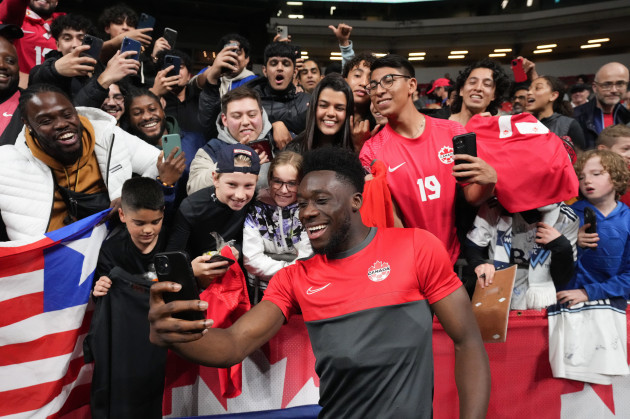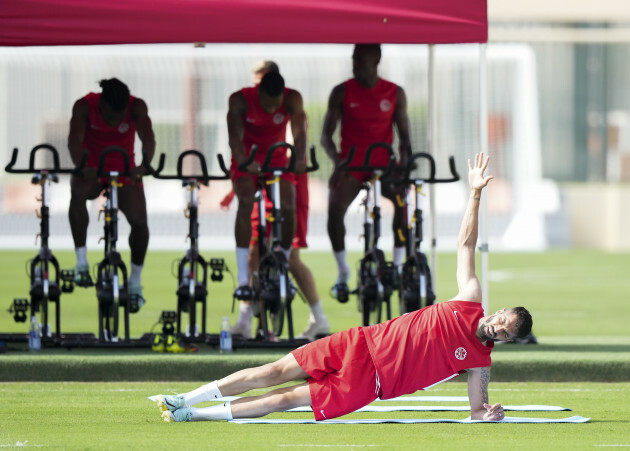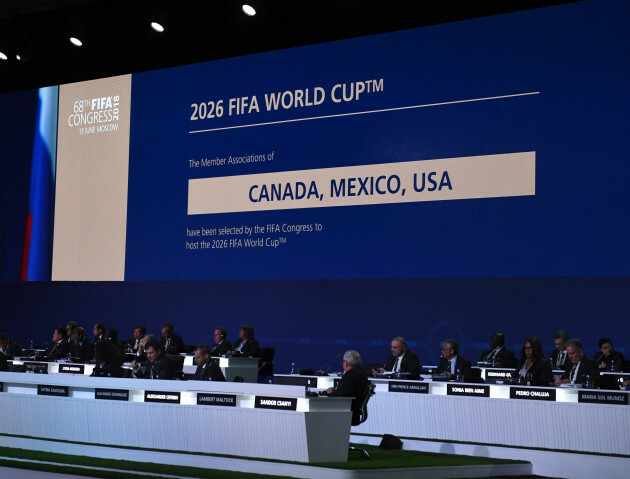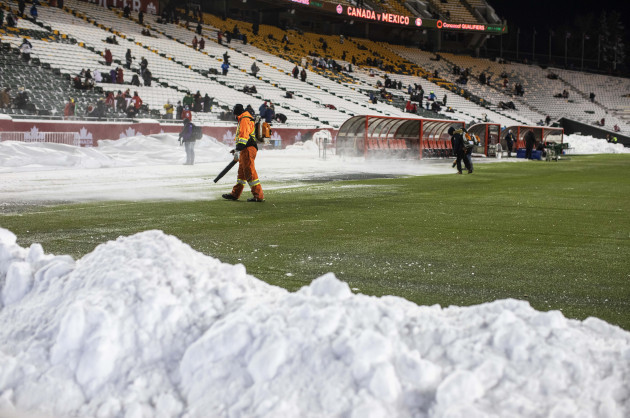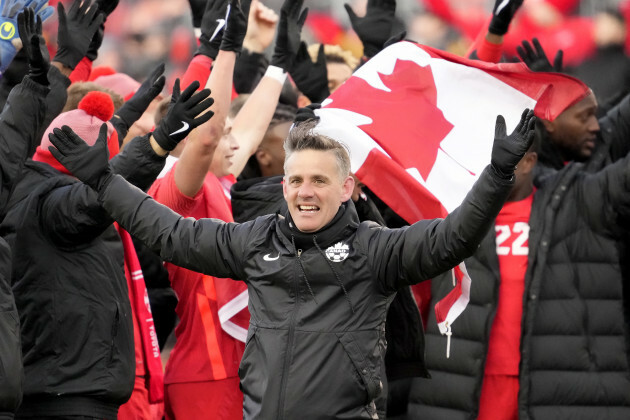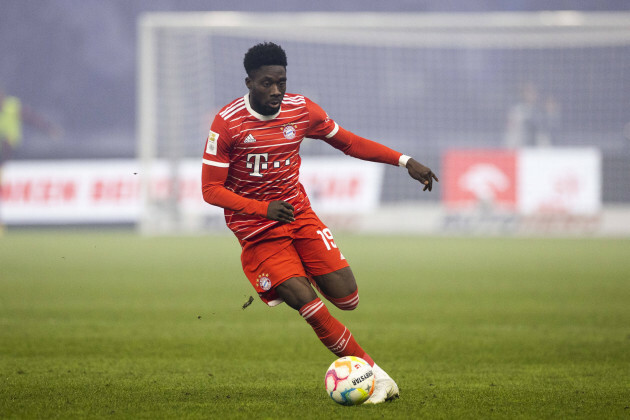NOBODY WAS QUITE ready for this and understandably so. Dig deep enough and you’ll find that Canada’s history with football is compelling and storied in its own right, but it’s never punctuated the public consciousness. In fact, it’s never even come close.
Bereft of infrastructure, support and genuine interest for many, many decades, the landscape was – for the longest time – a valley of emptiness. Without the senior women’s team accumulating Olympic medals and a degree of celebrity in recent years, who knows just how bleak things would be.
Canada never really had to care about the game too much. They weren’t very good at it. And, after all, there was ice hockey. Their sport. Their national pastime. The language of the people.
But the beloved game is now mired in controversy. What began as a sexual assault story earlier this year involving members of the underage Canada team quickly morphed into a wider expose of how the sport’s governing body used a special $15 million account – partially funded by players’ registration fees – to secretly pay off abuse victims.
The behemoth is now a lot less intimidating without the army of impressive corporate sponsors that regularly propped them up. It’s been a PR disaster as so many of those companies have cut ties, but perhaps the most damaging aspect is the disintegration of a once-lucrative relationship Hockey Canada steadily forged with Canadian families.
Tapping into household dynamics, they sold the romanticism of the ritual and how the daily grind of early rises and drop-offs at the rink (fuelled by drive-through coffees) were those special, intimate moments between parents and kids that needed to be cherished. A deep-rooted relationship with the game was formed, usually lasting lifetimes and crossing generations. In every small town across the country, the ice rink was the focal point and not just for sport. For everything. Births, deaths, marriages. Hockey culture was all about community, they said.
But it was, in many ways, an unhealthy singular obsession. Warnings rang out down through the years: sex offenders masquerading as coaches, a toxic hazing culture. But it finally seems like the trust has been broken.
The influence remains and the NHL is still the biggest show in town, however, at grassroots level parents are beginning to wonder if there’s something else – something better – worth committing to. That in itself represents a seismic moment for sport in Canada.
The 2022 World Cup is a culmination of a developing curiosity and engagement with football in this country that’s been continuously rising for about four years. It was January 2019 when Alphonso Davies formally arrived at Bayern Munich and although it seems ridiculous to suggest one player’s transfer was a game-changer for Canada’s burgeoning support of a sport, it seemed to shift a strange inferiority complex that certainly impacted football’s ability to draw wider interest.
A lot of the time, it felt like Canadians were uncomfortable fully embracing a game that wasn’t theirs, like they were culturally appropriating something that belonged instead – so strongly and fervently – to the multitude of immigrant communities that populated so much of the place. Upon arriving here, I was often told of the adrenaline surge in Toronto when Italy and Portugal – in particular – were competing in World Cups and European Championships. People celebrated on the streets in their droves, wiping their tears on their flags, giddy with excitement and drunk on the inexplicable intoxication only football can provide.
I always wondered why Canada games – even crucial qualifiers – didn’t carry the same electricity or interest. And perhaps it was because Canadians simply had more fun watching the antics and energy and urgency of those supporting other nations. For Canadians, there was nothing to get behind. They lacked a football identity of their own.
Even some of the players looked elsewhere too. Owen Hargreaves was born and raised in Calgary but couldn’t wait to represent another country. He threw his hat in with Wales first, before England poached him. Asmir Begovic and his family found refuge in Edmonton when the Balkan War forced them to flee Bosnia. He played underage for Canada before getting fed up with the lack of a senior cap and was wooed by his native country instead. Back in 1999, striker Tomasz Radzinski, then at Anderlecht, decided to simply not show up for Gold Cup qualifying in the US and didn’t play again for two years, eventually telling the Canadian Soccer Association he would ‘consider’ coming back for a game against Malta in 2001.
They brought him back.
And then Davies came along and changed everything.
In the summer of 2018, he stepped on stage at Fifa Congress as bidding teams made their final presentations in a quest to become the 2026 World Cup hosts. Davies proved the special ingredient to the US/Mexico/Canada bid and told the crowd of his early years, how his parents had fled civil war in Liberia and how he was born in a refugee camp in Ghana.
“It was a hard life. But when I was five years old, a country called Canada welcomed us in,” he said.
The bid was victorious. But outside of that, Canada finally had an international poster boy: a supremely gifted footballer hellbent on playing for the country at the highest level. A kid full of ambition and optimism and innate talent. Though he had an easy out and could have declared for Ghana, he was very much a proud Canadian. Even as a teenager, he was already a figurehead. And his emergence was a turning point. It stirred a sense of belief that has only increased.
Qualification was a surreal experience, as the Canadians spectacularly navigated a traditionally treacherous final round of CONCACAF fixtures. Their first number of games were stable rather than stirring, but included a pair of standout away draws: the first in Nashville against the US and the second a superb comeback display at the Azteca against Mexico. The latter result seemed to instil a new-found resoluteness, as subsequent road trips to notorious locations were dealt with ruthlessly and without the usual drama and disaster.
However, all roads seemed to point to back-to-back home assignments against the region’s heavyweights across late-2021 and early-2022. In a ploy designed to irritate and annoy, Canada set their clash with Mexico in mid-November for the somewhat less-salubrious surrounds of Edmonton. Hoping the frozen conditions could unsettle their opponents, it went even better than expected. Temperatures dropped to -17 Celsius and the stadium – excellently dubbed the Iceteca – was carpeted in snow for much of the day. A pair of goals from Cyle Larin ensured a monumental 2-1 win, while there was a clinical derby victory over the US two months later.
The team went 11 games unbeaten and secured qualification with a penultimate-day drubbing of Jamaica at an electric BMO Field in downtown Toronto, fittingly an emotional occasion that finally seemed in line with all of those yarns locals used to tell about Italy and Portugal fans celebrating in neighbourhoods like Woodbridge and St Clair West. Canada finally had forged something special for themselves.
What’s expected of them in Qatar? The majority of fans are cautiously optimistic, aware it’s a tough ask to get through such a competitive group when the intensity of the tournament can be difficult to grapple with. The squad is solid, but comes with question marks. The Tier 1 names like Davies and a still criminally-underrated Jonathan David are obvious, while midfielder Stephen Eustaquio has been in excellent form for FC Porto, especially sparkling in some recent Champions League outings. The Club Brugge pair of Larin and Tajon Buchanan (who has the potential to turn some heads at this tournament) can cause problems but elsewhere, it’s a collection of MLS players (admittedly the majority off the back of an impressive season with CF Montreal) and others plying their trade at unfashionable European clubs.
Captain Atiba Hutchinson has been reborn since moving to Turkish side Besiktas in 2013 and grown into a Super Lig icon and relentless winner. But, he turns 40 in February. Elsewhere, defender Richie Laryea failed to make an impact at Nottingham Forest and returned to Toronto FC on loan earlier this year while the immediate futures of other names like Jonathan Osorio and Lucas Cavalini remain unclear.
Still, though they might be limited, what they have in abundance is spirit, cohesion and motivation. Which inevitably leads to John Herdman.
The Englishman has been immersed in the game here since 2011 and spent seven years as Head Coach of the women’s side, guiding them to two third-place Olympic finishes: at London 2012 and Rio 2016. However, few mention the 2015 World Cup – on home soil – when Canada were limp and languid and meekly exited the tournament in the quarterfinals, having scored just four times in five games.
But you’ll do well to find anybody willing to criticise him in Canada. Given this particular qualification run, he’s now spoken about in exalted terms and even the most queasy behaviour is ignored. A man who enjoys the motivational aspect of high-performance, Herdman certainly likes the sound of his own voice but is a fine communicator, though he will occasionally deliver a cringeworthy Brentism. During qualifying, he contacted a Toronto-based bladesmith and had a sword custom-made that travelled with the team. Later he delved into the story in more detail.
“We created a sword and on the sword it says ‘Nihil timendum est,’ which is ‘Fear Nothing’ [in Latin]. And that’s New Canada. That’s the swagger we want to play with. And it goes into every stadium to symbolize we’ll own their ground and be New Canada.”
This is Herdman and Canada’s relationship in a nutshell. It’s a cocooned existence of sorts, and he would certainly receive harsher reviews in a different market. But, the players have responded. It has been galvanising.
Yes, it’s the best generation of Canada players in history. But Herdman has made the group mentally tough. There has not been the cliched qualification mishap or humiliating stumble as the finish line approaches. Instead, it’s been calm and collected.
The issue now is to replicate that when a different pressure arrives. Already, on the eve of the tournament, Herdman is dealing with an annoying hamstring injury for Davies while Eustaquio is also a doubt for the opener with Belgium. These are fresh and fluid issues that require quick, editorial decision-making. Usually in international management, you get more time to mull. So, it will be interesting to watch Herdman in a more immediate and fast-paced environment.
With all that said, there’s a wider story at play here: Canada and this sport.
The United States had a similarly complex relationship with football for the longest time – even after the creation of Major League Soccer. But the country started to build a culture around World Cup appearances. American fans, as they’re so accomplished at, expertly draped themselves in the flag and waited for the spark. It came in 2002 when, inspired by Landon Donovan, they not only beat Portugal during the group stage but qualified for the knockout round. In what remains a landmark moment, they conjured Dos a Cero: a stunning 2-0 victory over bitter rivals Mexico.
Despite a quarter-final exit at the hands of Germany, this was a team now delivering on the grandest stage. Respect had been earned and, unsurprisingly, dovetailing neatly with the success of the national team was the expansion of MLS and an upward trajectory that has continued at an exhausting pace ever since.
This is a jumping off point for Canada. Davies joined Bayern in 2019, also the year of the inaugural Canadian Premier League season, the first time domestic players had a pro environment to play in since the early 1990s. There’s already been club expansion, a litany of player sales to some decent clubs in high-profile leagues around the world, while Joel Waterman, a member of Herdman’s World Cup squad, was part of that initial CPL campaign before being signed by CF Montreal. There’s now a pathway for young pros, there’s supporters motivated to attend games in their local communities and invest in a lower level and that Canadian football identity is growing all the time.
It’s imperative that no matter what happens in Qatar, the momentum continues regardless.
For the latest news coverage on the Fifa World Cup Qatar 2022, see here >
